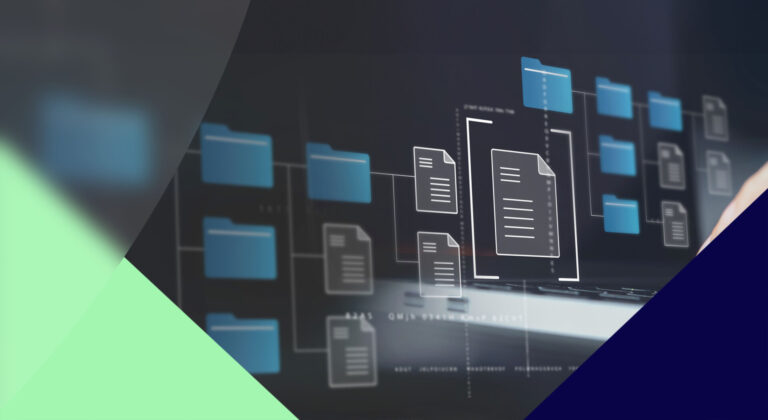Traditionally, validation processes in the life sciences industry have been heavily manual, involving extensive documentation and hands-on testing to ensure equipment, processes, and products meet rigorous regulatory standards. While effective these methods are time-consuming and resource-intensive, often leading to challenges like prolonged product development cycles and increased costs.
Digital validation, artificial Intelligence (AI), and machine learning (ML) technologies offer remarkable potential to revolutionize validation processes. Together they can generate, manage, and analyze vast amounts of data with unparalleled accuracy and speed, identifying patterns and predictions that are invisible to the human eye. This capability not only enhances the precision of validation activities but also enables a predictive approach to validation, foreseeing and mitigating potential issues before they arise, and contributing to commercial performance.
Digital Validation
The advent of digital validation has already begun to reshape the traditional landscape. Year-over-year analysis of data obtained from recent State of Validation reports shows a significant increase in the adoption of digital validation technology (four times as many or a 42-percentage point jump)—but there is still room for growth and further digitalization in the industry.
For those still using manual methods, the results may serve as a catalyst to explore the potential benefits, including competitive advantages, offered by digital validation solutions. At some point in the future, digital validation will become an “entry ticket” item in a competitive market—and not a differentiator.
Read our Case Study to understand how Merck Sharp & Dohme (MSD) and Kneat partnered to achieve global end-to-end digitalization of validation, enabling MSD to accelerate product launches, improve real-time regulatory data provision, and enable remote validation.
Integration Capabilities
Digital validation technology that can integrate with other systems used in highly regulated manufacturing, like ERPs, MES, QMS, DMS, and PLMs—and AI and ML technologies—offers the ability to automate complex processes, collect, share, manage, and analyze data more efficiently, and predict outcomes with a high degree of accuracy.
This transition is not just about doing things faster; it’s about doing them smarter, enabling a level of precision and insight previously unattainable through manual methods alone.

Key Applications of AI and ML in Validation Practices
- Automated Data Analysis: One of the most impactful applications of AI and ML in validation processes is the automated analysis of data. AI algorithms can process vast quantities of data from validation tests in real-time, identifying trends, anomalies, and potential issues far more quickly than human operators. This capability not only accelerates the validation process but also enhances its accuracy by reducing the risk of human error.
- Predictive Maintenance and Validation: AI and ML are also being used to predict when equipment used in the manufacturing process might fail or when a process is drifting out of its validated state. By analyzing historical and real-time data, AI models can forecast potential issues before they occur, allowing for preventive maintenance and adjustments. This predictive approach not only prevents costly downtime and ensures continuous compliance with validation standards but also significantly improves product quality.
- Process Optimization: ML algorithms are adept at identifying the most efficient processes and parameters for product manufacturing. By analyzing data from various runs, these algorithms can suggest adjustments that optimize the production process, enhance yield, and ensure consistency—all of which are critical components of the validation process. This application is particularly valuable in complex biological manufacturing processes, where small variations can have significant effects on the final product.
AI and ML: Addressing Challenges
As the life sciences industry embraces the integration of AI and ML into validation processes, several challenges emerge, particularly around data privacy, security, regulatory compliance, inherent biases in AI models, and ensuring reliability. Addressing these challenges is crucial for ensuring that the benefits of AI and ML can be fully realized without compromising ethical standards or regulatory obligations.
Data Privacy and Security
The use of AI and ML in validation processes often involves the handling of sensitive data, including patient information, proprietary product data, and detailed manufacturing parameters. Ensuring the privacy and security of this data is paramount.
Advanced cybersecurity measures, including encryption and secure data access protocols, must be implemented to protect data from unauthorized access or breaches. Additionally, compliance with global data protection regulations, such as GDPR in Europe and HIPAA in the United States, is essential. These regulations impose strict rules on data handling practices, and non-compliance can result in significant penalties.
Regulatory Compliance
The regulatory landscape for AI and ML in life sciences is still evolving. Regulatory bodies worldwide are working to establish guidelines that ensure AI and ML applications in validation are reliable, safe, and effective.
Navigating these regulations requires a proactive approach, with companies staying abreast of new guidelines and engaging with regulatory bodies to ensure their AI and ML validation processes meet all necessary standards. This includes demonstrating the validity of AI/ML algorithms, the accuracy of their outputs, and the reproducibility of their results in validation tasks.
Bias and Reliability of AI Models
AI and ML models are only as good as the data they are trained on. Biases in training data can lead to skewed or inaccurate model outputs, which can be particularly problematic in validation processes where accuracy is critical. To address this, it’s essential to use diverse and representative datasets for training AI models.
Regular auditing of AI/ML algorithms for potential biases and errors is also crucial. Ensuring the reliability of AI models involves rigorous testing and validation, including the use of external datasets and scenarios to test model predictions against known outcomes.
Ensuring Reliability
Beyond addressing biases, the reliability of AI and ML in validation processes depends on continuous monitoring and updating of algorithms to reflect new data, insights, and technological advancements. Establishing robust quality control measures and validation protocols for AI/ML applications ensures these technologies provide consistent and accurate results over time.

AI and ML: Preparing for the Future
As the life sciences industry ventures deeper into the realm of AI and ML, preparing for the future becomes crucial. The integration of these technologies into validation processes necessitates a forward-thinking approach to skill development and strategic planning.
Here’s how organizations can gear up for this transformative shift:
Invest in Training
Organizations should prioritize the development of AI and ML competencies among their workforces. This can involve offering training programs, workshops, and courses that cover the basics of AI and ML, and their applications in validation processes. Tailoring these learning opportunities to the specific needs of different roles within the organization can ensure that both technical and non-technical staff understand the potential and limitations of these technologies.
Implement Digital Validation
The benefits of implementing a digital validation solution that seamlessly integrates with AI and ML technologies extend far beyond the immediate efficiencies gained. Such a solution fosters a more dynamic, responsive validation process that can adapt to changing regulations, processes, and product innovations. It supports a move towards a more proactive validation strategy, where potential issurvsues can be anticipated and addressed in real time, minimizing risks and maximizing product success. Additionally, a digital validation platform serves as a repository of historical data, facilitating continuous learning and improvement, and enabling a deeper understanding of the validation process itself.
Foster a Culture of Continuous Learning
Encouraging a culture that values continuous learning and innovation is essential. This can be achieved by promoting knowledge-sharing sessions, supporting attendance at industry conferences, and facilitating collaboration with technology experts and academic institutions. Such initiatives can help keep staff abreast of the latest digital validation, AI, and ML advancements and best practices.
Final Thoughts
Digital validation and the integration of AI and ML into validation processes is not just an enhancement but a necessary evolution for the life sciences industry. It represents a shift towards Pharma 4.0 and a more agile, data-driven approach that can significantly improve product quality, safety, and time to market. As the industry stands on the brink of this technological transformation, the call to adapt and innovate is clear.
Register for our demo webinar to get a comprehensive overview of all the latest Kneat Gx features and functions, including enhanced integration capabilities, audit readiness, and much more!




